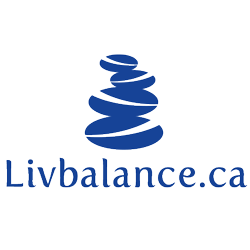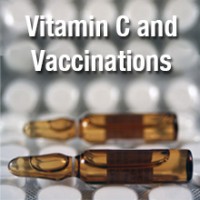Vaccinations may just be the most controversial topic among parents, healthcare professionals, government and concerned citizens. While both sides of the great vaccination debate deserve attention, we are not going to discuss whether or not vaccinations are a good thing. The purpose of this article is solely to present vitamin C as a viable option for neutralizing the toxicity associated with vaccinations.
To start, let’s go over what we mean when we say toxin. Toxins are formally known as substances produced by living cells and organisms that are poisonous. Natural and synthetic substances that have poisonous effects, like heavy metals and pesticides, are also commonly referred to as toxins. For our purposes, we are using the word toxin to refer to any substance that has a poisonous effect in the body.
So how do toxins relate to vaccines? The purpose of a vaccine is to prevent disease by stimulating immunity. To do this, the vaccine is made with antigens – substances that stimulate an adaptive immune response. In vaccines, antigens are weakened viruses or bacteria (i.e. toxins). Vaccines also include a fluid (such as sterile water or saline), preservatives, stabilizers, and other chemicals intended to improve the effectiveness of the vaccine.
According to the Centers for Disease Control and Prevention (CDC), vaccines commonly include the following substances, which are all well-known toxins:
- Aluminum gels or salts of aluminum
- Antibiotics
- Formaldehyde
- Monosodium glutamate (MSG) and 2-phenoxy-ethanol
- Thimerosal, a mercury-containing preservative
Although only small amounts of these ingredients are included in each vaccine, they still present a toxic challenge to the individual through a process called oxidation.
Here’s how it happens:
We have already established that vaccines include toxins. All toxins produce reactive oxygen species (ROS), many of which are free radicals (highly unstable molecules that are searching for additional electrons). Free radicals take electrons from otherwise healthy cells, leaving them damaged or oxidized.
The health of the cell can only be restored when an antioxidant donates its own electrons to the damaged cell. As a powerful antioxidant, vitamin C is able to reverse oxidation, thereby neutralizing the toxicity of the toxin exposure.
At the same time the vitamin C is blocking or neutralizing the toxic side effects of the vaccination, it is also helping the vaccine optimize the body’s immunity response to the antigens.
Dr. Thomas Levy Offers A Practical Approach to Taking Vitamin C With Vaccinations:
First and foremost, anyone getting vaccinated (or their caregiver) should make the treating doctor fully aware of what is being done. For optimal antibody support and toxin neutralization, it would be good to dose the vitamin C for three to five days before the shot(s) and to continue the vitamin C for at least two to three days afterwards.
When dealing with infants and very young children, a 1,000 mg dose of liposome-encapsulated vitamin C mixed into something like yogurt can work very well. If this form of vitamin C is not available, sodium ascorbate powder will work quite well. Infants under 10 pounds can take about 500 mg in fruit juice or water, and those between 10 and 20 pounds can take from 500 to 1,000 mg.
In general, children can take 1,000 mg daily per year of life, up to about age five. If loose bowels ensue, the dose can be reduced.






